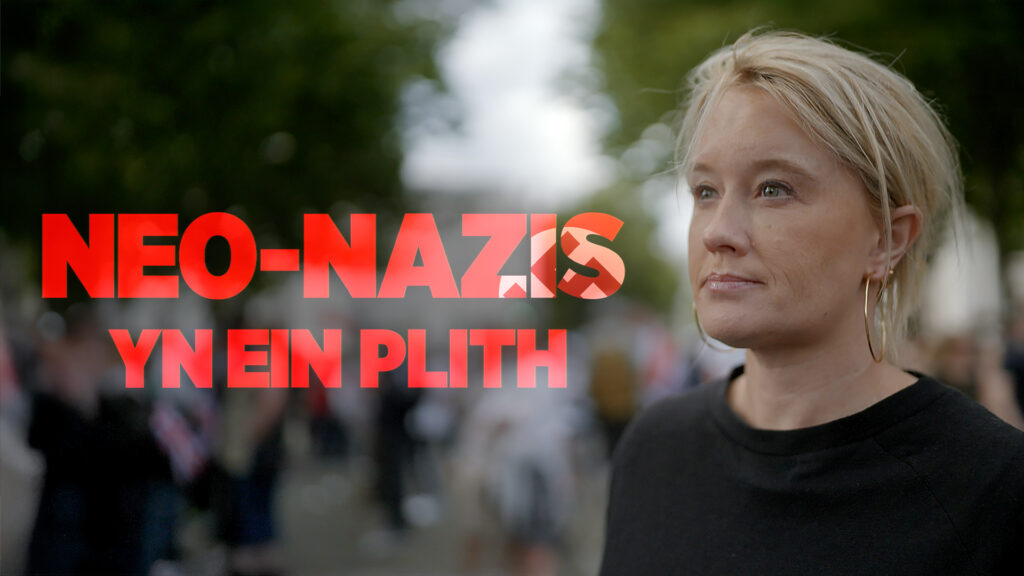“On our doorstep”: New programme sheds light on the rise of neo-Nazism in Wales

The number of teenage boys in Wales who are being radicalised by neo-Nazi groups is growing faster than in any other part of the United Kingdom – and it’s time to recognise that it’s happening right under our noses, says a lecturer from Cardiff University.
In Byd Eithafol: Neo-Nazis yn ein Plith, journalist Maxine Hughes lifts the curtain on the far-right groups that thrive online and the vulnerable people they target. Through interviews with those all sides of the debate – politicians, teachers, current and former far-right activists, protesters against the camp for refugees in Penally, young gamers and their parents – a shocking picture emerges of the extent of the problem in Wales.
Radicalisation
Statistically, white boys under 20 years of age in rural areas are most likely to be absorbed into the extreme right-wing culture, by self-radicalising online.
This leads Maxine to explore how easy it is to connect with suspicious people in online games, and to talk to the mother of one boy who was radicalised. “My son was like any 14-year-old boy. He was happy, fun, kind, caring and loving,” she said. “By the end, we had no relationship at all.”
Maxine comes to understand that far-right groups are targeting neurodiverse young people especially – and why.
“Sometimes autistic people will seek out sensory experiences because they don’t get that feedback naturally from their own sensory systems,” explains Dr. Donna Sharland, a Neurodiversity Specialist Consultant with Counter Terrorism Policing Wales.
“So things like visual symbols can be very attractive; flags have always been very attractive to autistic people. So you can understand that when far-right groups use those symbols it can attract [neurodivergent people]. It’s very worrying.”
Naivety
The Welsh are naive about the threat of neo-Nazism, argues Dr Huw Williams, philosophy lecturer who has studied the growth of the extreme right-wing movement in Wales.
“It’s more or less on our doorstep. We know that these ideas, these attitudes, these groups, are alive and well to a large extent,” he said.
“That is problematic. We have to be realistic about the fact that these ideas are of course taking root and have been there for many years.”
The programme will be shown on S4C on Monday 31 March at 20:00 and will also be available on S4C Clic and BBC iPlayer.
Support our Nation today
For the price of a cup of coffee a month you can help us create an independent, not-for-profit, national news service for the people of Wales, by the people of Wales.






I see what’s mentioned here regularly, and the hate it generates spreads through the victims family and peer group like an awful cancer.
I especially agree about the rural areas, where it appears that the ones being groomed into extremist behaviour are smothered with gifts of alcohol and the usual favours.
Unfortunately it’s inaction that’s got us here, and the more that we allow the facisist ideals to take over Welsh communities, the harder it will be to drop them later.